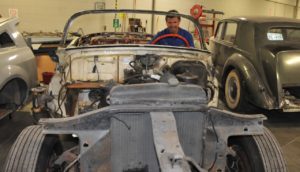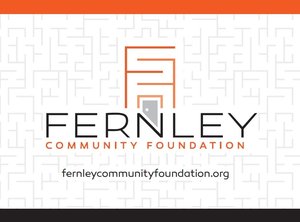Automotive mechanics, body repair training at WNC leads to employment
Courtesy Steve Yingling, Western Nevada College
Gain the knowledge and skills necessary to pass the Automotive Service Excellence industry certifications that more and more auto repair shops are requiring of their employees. Jump Start an auto mechanics or auto body repair career as a high school junior or senior. Or perhaps helping restore a 1953 Cadillac sparks an interest.
Western Nevada College’s Automotive Mechanics/Automotive Auto Body departments offer individuals the training necessary to become employed by local repair shops.
Low education costs, accelerated training, industry certification preparation and certificates of achievement, job placement, a stable job market, decent pay and employment opportunities at a younger age are reasons to check out what WNC has to offer.
Becoming an auto mechanic doesn’t require a lot of time and resources. And the payoff for people who earn the industry certifications while training at WNC is a high rate of employment and steady work.
“If they do the ASE testing and get the certifications, they are for sure going to get an interview and are probably going to get hired,” said WNC Automotive Mechanics instructor Jason Spohr. “I get calls all the time from shops ready to hire a student right now. Our goal is to get students out in the workforce.”
Realizing Employment after Graduation

Jason Spohr, an Auto Mechanics instructor at Western Nevada College, sits behind the wheel of a 1953 Cadillac that Auto Mechanics and Auto Body classes will restore in the coming year.
Since graduating last spring, Michael Atkinson has been able to find work at two local repair shops. After earning his Associate of Applied Science degree in Auto Mechanics, he became employed at All American Auto & Diesel in Gardnerville. He now works at Carson City Toyota with WNC grad Willie Jim.
“It was more or less my job contacts in the community that helped me get the job,” Atkinson said. “Dr. (Georgia) White (WNC’s director of Career and Technical Education) got me the interview at Toyota and Jason had called All American to get me the interview there.”
Going forward, Atkinson said that it is important for him to pass ASE industry exams. For the past month, Atkinson has been preparing to take steering and suspension, brakes and engine electrical exams.
“I’m trying to make myself as marketable as possible,” Atkinson said. “I didn’t forget too much from being in school and being in school was really helpful with what I had to study.”
High School Students Become Involved in Program
High school students became part of the WNC’s Automotive Mechanics program in 2016 and the college will welcome secondary education students for the Automotive Body program in the fall of 2017. Through accelerated training in Automotive Mechanics, some students can be prepared for a professional career in as little as two semesters of work.
“Jump Start for auto mechanics works for seniors who have a block of time in their high school schedules and are able to come to WNC’s campus,” Spohr said. “We’re hoping to continually get a good number of students who can do the full Jump Start program by coming to the college 8 a.m. to 11 a.m., then returning to their high school to finish their day. We can also take juniors if their credits are up to date and they are not behind in anything; otherwise, it won’t fit in their program.”
WNC Offers Comprehensive Auto Body Repair Training
Through a series of Automotive Auto Body classes, students will learn how to repair and reconstruct damaged vehicles and become a knowledgeable auto body and collision repair technician.
WNC offers Auto Collision I and II with practice, Auto Refinishing I and II with practice, and Plastic Composite and Adhesives and practice, as well as Auto Collision and Refinishing Estimating.
Those classes are scheduled during evenings to accommodate students who work during the day. However, WNC will offer Jump Start students daytime auto body and collision repair classes starting in the fall.
Spohr said local body shops are hiring entry-level workers.
“A body shop may say I just need someone with automotive knowledge and interest, so that it can work them into hands-on training and help them gain the experience to do body repair,” he said.
Students Train on Latest Equipment Used in Industry
Spohr said that WNC trains Automotive Mechanics students in nine specific areas, including electrical, engine reconditioning, brakes, steering and suspension, air conditioning, electronics, transmission and transaxles, engine performance/fuel and ignition, engine performance/emission control. Individuals who complete a 60-unit program will earn an AAS degree in Auto Mechanics Technology. Students may choose to spend half of that time in the classroom by pursuing a 31-credit track to earn a Certificate of Achievement in Auto Mechanics to increase their chance of employment.
A mix of textbook material and hands-on practices prepares the students to pass up to nine ASE student exams.
“The certifications are extremely valuable,” Spohr said. “To me, that’s their ticket to get into the door. When they bring that certification that they passed the ASE exams, there is not an employer out there that wouldn’t at least give them a try.
“We have and train on the exact type of equipment that they will use in the field and more. It is our job to make sure what the students are using is applicable and in many ways even better than what the industry is using.”
Having been through WNC’s program and secured work locally, Atkinson suggests that students “definitely take their ASEs and build their contacts and resources for their résumés to get interviews and job offers.”
Student ASE exams contain half the questions of the professional-level exams. Once students become employed and demonstrate professionalism and competency, they are supported to learn the dealership or shop’s specific certification training. That is the case at Carson City Toyota where Atkinson works. He and other technicians who take the professional ASEs are reimbursed for the exams they pass.
“If students have the student ASE certs, it demonstrates their competency and probability they will pass the full ASE,” White said.
WNC’s training will enable students to work on the latest vehicles and diagnostically repair sophisticated engine components.
“You lift a hood now, and you don’t even recognize anything. You lift a hood and there is a big plastic cover and that’s all you see. It’s become pretty technical,” Spohr said.
Auto Restoration Coming in Fall
But that doesn’t mean that the department won’t work on older cars.
Spohr is excited that his department plans to offer a comprehensive auto restoration class starting in the fall. Their first project is restoring a 1953 Cadillac provided by Carson City developer and auto collector Garth Richards.
This class will cover mechanical and auto body repair.
“We’re going to involve engine repair, chassis, brakes, steering, suspension and the body shop classes at night,” Spohr said.
For more information about WNC’s Auto Mechanics and Automotive Body Repair programs, contact Jason Spohr at 775-445-4270 or Jason.spohr@wnc.edu. To learn more about WNC’s Career and Technical Education programs, phone 775-445-4272 or visit www.wnc.eu/cte/ or www.wnc.edu/now/.




